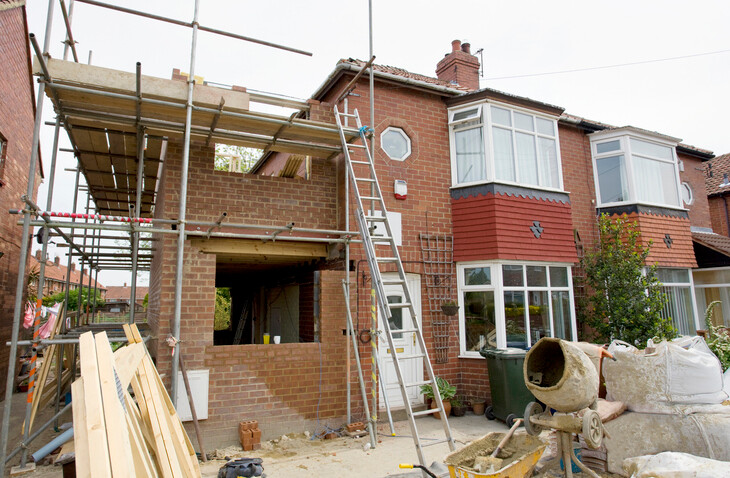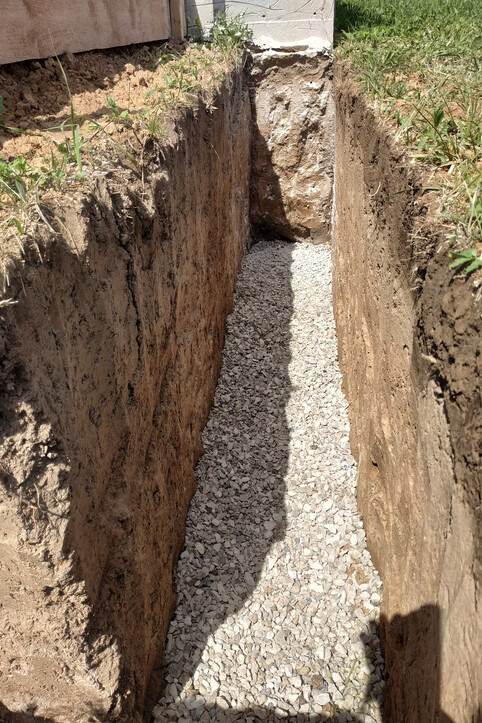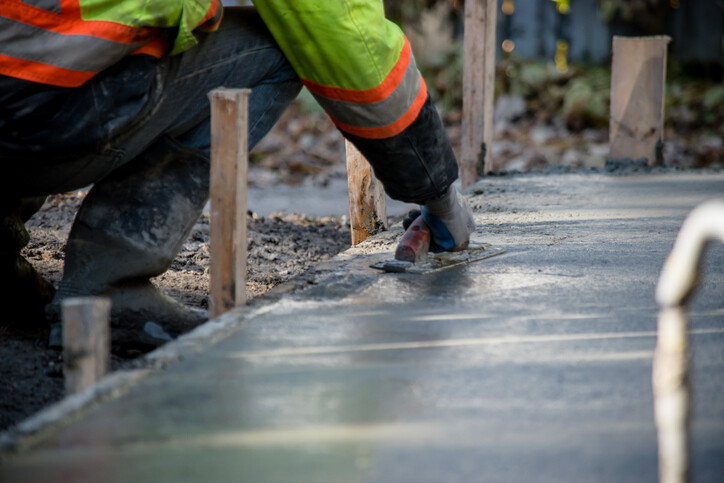 A DIY home extension project can add both space and value to your property. However, before you dive into the construction process, it’s essential to ensure that you have the right tools and equipment. In this guide, we’ll explore every step of how to lay the foundations of a DIY home extension and the equipment needed at each stage.
A DIY home extension project can add both space and value to your property. However, before you dive into the construction process, it’s essential to ensure that you have the right tools and equipment. In this guide, we’ll explore every step of how to lay the foundations of a DIY home extension and the equipment needed at each stage.
Reasons for considering a home extension
Home extensions are popular for several reasons, including additional space and enhancing property value. Some common motivations for embarking on a home extension project include:
- Extra bedroom: Growing families often require additional bedrooms to accommodate their children or guests.
- Conservatory: Adding a conservatory can create a bright, airy space that connects your home with the garden, perfect for relaxation or entertaining.
- Home office: With remote work becoming increasingly prevalent, many homeowners create a dedicated workspace by extending a room or adding a separate office structure.
Requirements for carrying out a DIY home extension
Before delving into the construction process, it's essential to consider the following requirements when carrying out a DIY home extension:
- Legal restrictions: Homeowners must adhere to Building Regulations and obtain necessary planning permissions before commencing any extension work. Failure to do so can result in fines, enforced demolition and legal complications.
- Ground conditions: Assessing the ground conditions of your property is vital to ensure the stability and longevity of your extension. Factors to consider include:
- Drainage: Proper drainage is crucial to prevent water from pooling around your extension, which can lead to dampness and structural damage. Ensure that the ground slopes away from the building and consider installing drainage systems if needed.
- Flood risk: If your property is located in a flood-prone area, you'll need to take extra precautions to protect your extension from potential water damage. This may include elevating the building or using flood-resistant materials.
- Environmental considerations: Consider any environmental factors that could impact your extension, such as nearby trees, the roots of which may affect the stability of the soil, or protected habitats that may restrict construction.
- Cost and feasibility: Depending on the ground conditions, the cost and complexity of construction may vary. Conduct a thorough assessment of the site to determine the feasibility of building an extension in your desired location.
- Other planning considerations: Factors such as property boundaries and neighbouring structures may influence the design and execution of your home extension project. By familiarising yourself with these requirements and conducting thorough research, you can ensure a smoother and more successful construction process.
 How to lay foundations for an extension
How to lay foundations for an extension
The preparation of foundations for a home extension typically involves the following phases:
Planning and surveying
This initial phase involves assessing the site, obtaining necessary planning permission and designing the foundation layout following building regulations and structural requirements.
- Challenges - Identifying any constraints or challenges, such as property boundaries or environmental considerations, is crucial for developing a viable construction plan. Addressing these constraints early in the planning process can prevent delays and costly revisions as the project moves ahead.
- Site access - Assessing access to the site for construction equipment and waste removal is another critical aspect. Ensuring adequate access routes and clearance space is essential for seamless project execution.
- Surveying - Surveying involves the measurement and mapping of land, as well as the collection of data related to its features and boundaries. You should note precise measurements and layout markings to guide construction activities and ensure that structures are built according to design plans.
- Foundation depth - For a single-story extension, the depth of foundations can vary depending on factors such as soil type, the size and weight of the extension. Generally, for a single-story extension, foundations typically need to be at least 1 metre deep. However, this can vary.
Clearing and digging
Once the site is prepared, clear any vegetation, debris or existing structures from the area. Excavate the ground to the required depth and dimensions for the foundation.
Concreting
After excavation, you can begin laying a concrete floor. Pour the concrete into the foundation and properly compact it to eliminate air pockets and ensure uniform strength.
Equipment required for each phase
To execute each phase efficiently and safely, you'll need the appropriate equipment:
Planning and surveying
- Measuring tape and marking tools - Essential for accurately marking out the extension dimensions and foundation layout.
- Surveying equipment - Including laser levels for precise elevation and alignment measurements.
Clearing and digging
- Skips - For efficient removal of debris and waste materials from the site.
- Diggers - Excavators or mini diggers equipped with various attachments such as buckets, augers and hydraulic breakers for digging trenches and excavating soil.
- Dumpers - Used for transporting excavated soil and materials away from the site, minimising manual labour and increasing productivity.
- Concrete mixers - Mixers are essential for blending cement, aggregates and water to the correct consistency.
- Compactors - Vibrating plate compactors or roller compactors ensure proper compaction of freshly poured concrete, reducing the risk of settlement and structural issues.
- Concrete finishing tools - Including trowels and screeds for smoothing and levelling the concrete surface to achieve the desired finish.
Choose Paragon Tool hire for all of your DIY plant and tool needs
At Paragon Tool Hire, we understand the importance of having access to high-quality equipment for your DIY home extension project. Our extensive range of tools caters to all your construction needs, ensuring efficiency and professional results. Whether you require excavators, dumpers, concrete mixers or any other equipment mentioned above, we've got you covered. With our competitive rates and expert advice, you can set yourself up for success. To find out more about our DIY home extension tools, please get in touch. Call our experienced team today on 01280822282. We look forward to hearing from you.

